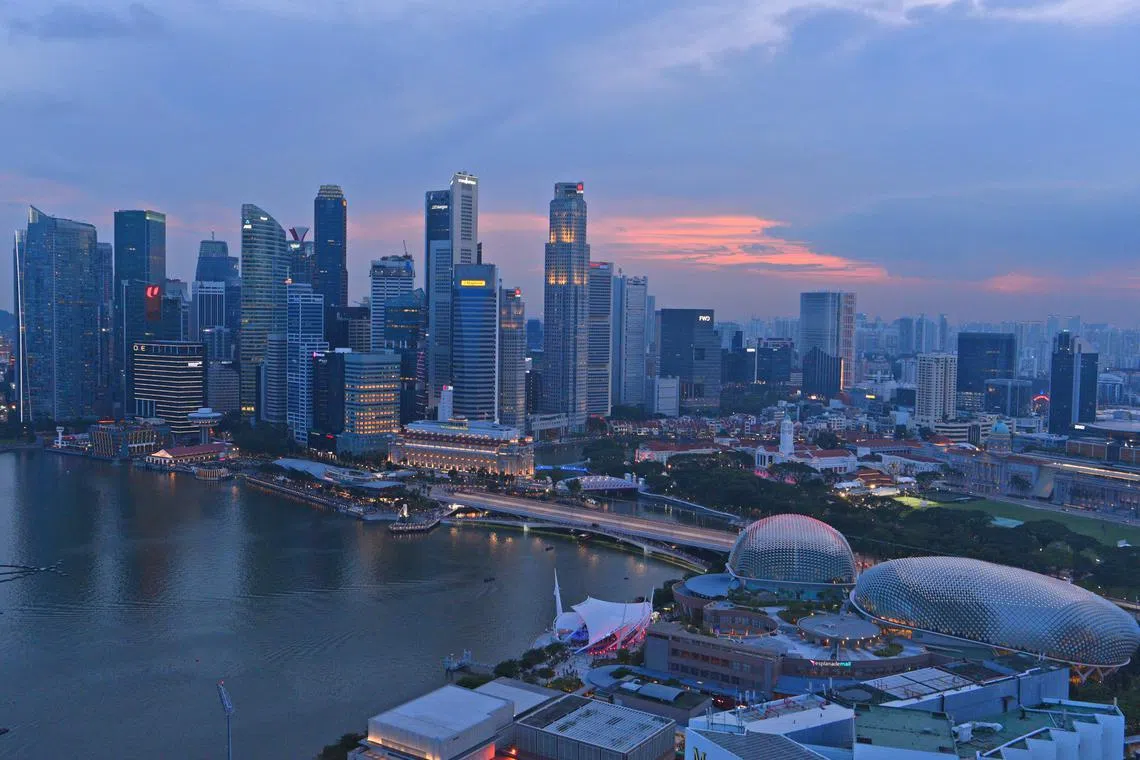Banks can do more to help clients mitigate nature-related risks: Report
Sign up now: Get ST's newsletters delivered to your inbox

Singaporean, Indonesian and Malaysian banks, on average, meet at least 70 per cent of the criteria for recognising nature-related risks.
PHOTO: ST FILE
Follow topic:
SINGAPORE – Regional banks have deepened their commitment to reach net-zero emissions but more can be done for the lenders’ efforts to be sustainable, showed a recent assessment by the World Wide Fund for Nature Singapore (WWF-Singapore).
Singapore banks – DBS, OCBC and UOB – have likewise made strides in areas such as disclosing their environmental and social risk exposures and targets, but they fall short when it comes to setting client expectations in certain aspects.
The report, which was released on Thursday, covered 36 banks in South-east Asia and 10 major Japanese and Korean lenders. It found that 39 per cent of them set out in 2022 to achieve net-zero financed emissions by 2050. This was up from just 15 per cent in 2021.
Leading regional banks also continued to enhance their environmental and social risk management policies and processes. But half of the total banks assessed made little or no progress in this area, with many of them lacking basic procedures, according to the report.
“As the chasm between leader and laggard banks in the region widens, laggard banks risk becoming disproportionately exposed to environmental and social risks.
“It is critical that all banks in the region rapidly progress so that we have a chance to achieve the 1.5 deg C goal,” said WWF-Singapore on Thursday, referring to a global goal of limiting warming to that level.
Singaporean, Indonesian and Malaysian banks, on average, meet at least 70 per cent of the criteria for recognising nature-related risks such as environmental degradation and biodiversity loss in their clients’ activities.
However, this does not necessarily translate to banks setting customers’ expectations and policies on these issues. Singapore banks met, on average, only 40 per cent of the criteria in this area, while those in other countries fulfilled 20 per cent or less of it, said WWF-Singapore.
These criteria include requiring clients in sectors highly exposed to deforestation to adopt “no deforestation” commitments in their operations and supply chains, and asking those dealing with climate-related risks to develop mitigation plans.
“Banks need to go beyond recognition and commitment, and expand their capacity to manage these risks within their policies,” said WWF-Singapore.
Mr Ashish Sharma, vice-president for Asia sustainable finance at WWF-Singapore, said Singapore banks generally disclose more detailed information compared with their regional counterparts in developing policies for environmental and social issues.
All three Singapore banks have committed to net-zero financed emissions by 2050, he added, noting that DBS and UOB have also published sector-specific approaches to decarbonisation.
DBS, South-east Asia’s largest lender, in September mapped out its decarbonisation targets
Meanwhile, UOB in October set out emissions targets in six carbon-intensive sectors
Mr Sharma said Singapore-based banks set client requirements in some areas such as “no deforestation” commitments.
“However, banks (have yet) to set relevant expectations in other nature-related areas such as water management and sectors such as the marine and seafood sector,” he told The Straits Times.
WWF-Singapore’s report also noted that financial institutions play an important role in safeguarding ecosystems and setting client expectations to move towards sustainably sourced commodities.
Eleven of the 46 assessed banks disclosed palm oil policies, an improvement from 2021, when only three banks reported the same. Likewise, in the energy sector, 49 per cent of banks developed and disclosed specific energy sector policies, up from 29 per cent in 2021.
Mr Sharma said that while banks are setting expectations for oil palm plantation clients, they also need to set similar standards for those across the value chain, in areas such as refining, trading, manufacturing, retail and plantation suppliers.
He added: “Therefore, all banks, including those based in Singapore, need to set sector-based policies and ambitious client expectations on nature-related risks.”


